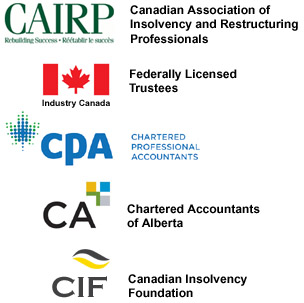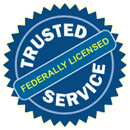TWO TYPES OF DEBT
UNSECURED DEBTS
SECURED DEBTS
If you get or have a consolidated loan it is very likely that the creditor has taken security and placed a lien on your asset(s). Although it does not happen in most cases, secured creditors may elect to cancel an agreement and repossess the asset notwithstanding that you want to continue your payments and keep the asset(s) and a bankruptcy will not prevent this if a creditor elects to do so.
If a person wants to keep an asset, it is important to keep a good relationship with that creditor. If you owe significantly more than the asset is worth, you should consider surrendering the asset, with the result that you have no further obligation to pay.
CO-SIGNERS / GUARANTORS
In some cases, creditors may have taken a guarantee or had someone co-sign on your behalf and they will have to pay that debt if you go bankrupt. In Many Cases, co-signers and guarantors are family members or persons related to the borrower.
If a person goes bankrupt and you receive a discharge from bankruptcy, you are, as a discharged bankrupt, at liberty to pay back your relatives or any other party you choose. As a discharged bankrupt, you have no legal obligation to pay or reimburse any creditor, however, repayments to a relative after you have received a discharge are gratuitous payments made by you which you are under no legal obligation to make.
GOVERNMENT DEBT
Government debts in many cases are treated exactly the same as unsecured debts in a bankruptcy and include Income Taxes, GST and directors’ liabilities for unpaid company debts.
HRDC debts, WCB, or Employment Insurance benefits received while ineligible are treated very differently and monies you received and consumed while you were ineligible survive a bankruptcy and must be repaid, in most cases after you receive your discharge from bankruptcy.



